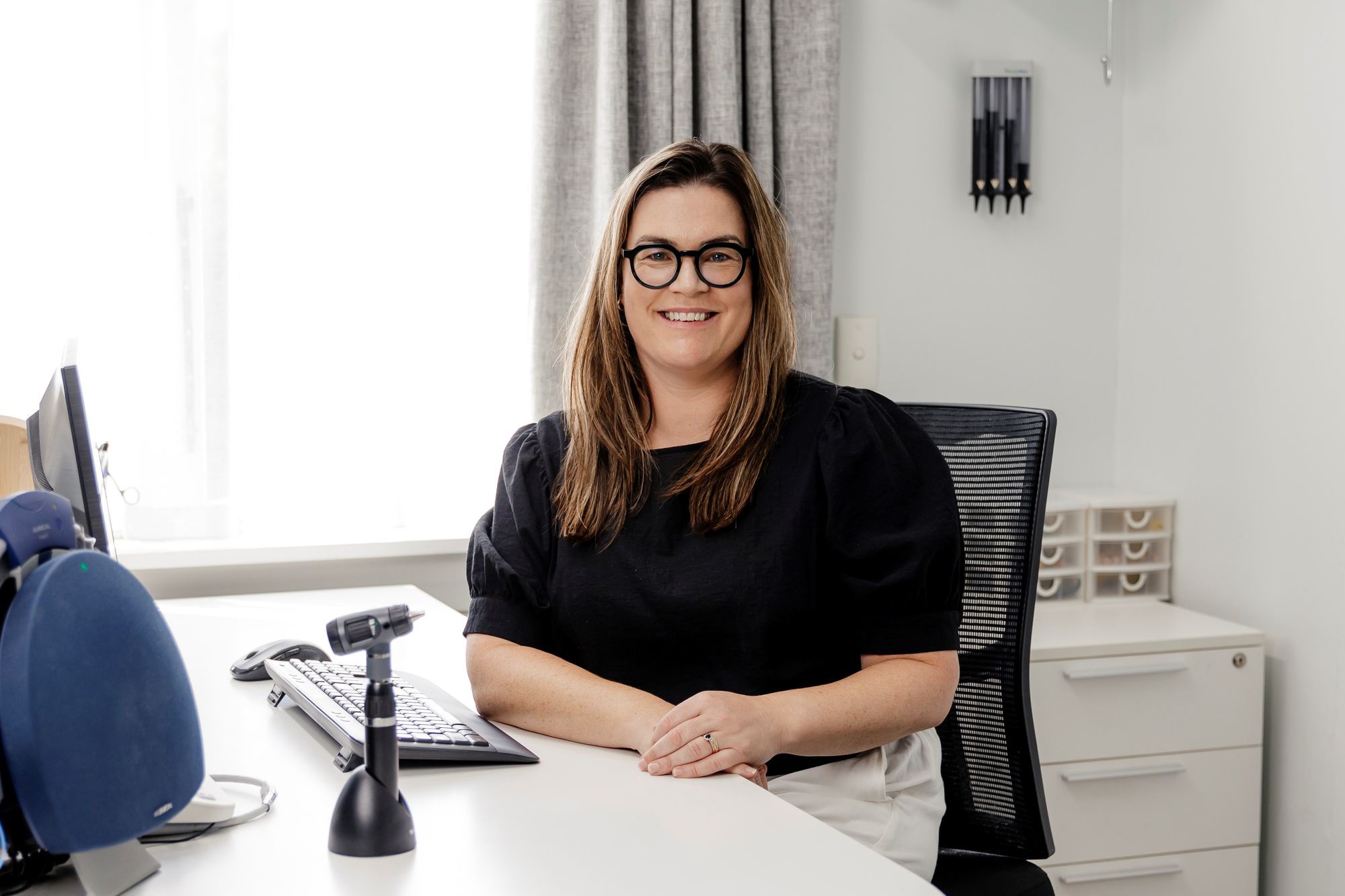Reconnecting through sound

Audiologist and speech and language therapist, Sara Blackmore from Blackmore Audiology.
Hearing is more than just detecting sound – it’s about making sense of the world around us. Sara Blackmore from Blackmore Audiology shares how specialist assessment and treatment for auditory processing disorder (APD) can make a life-changing difference.
For many in Marlborough, hearing isn’t just about sound – it’s about connection. Whether it’s keeping up in the classroom, following instructions at work, or catching up with a friend over coffee, hearing and understanding speech is essential to engaging with the world around us. But for those with auditory processing disorder (APD), understanding speech – especially in noisy environments – can be a daily struggle. This can impact relationships, education, and work opportunities, making even simple conversations frustrating.
Now, Blackmore Audiology – Marlborough’s only independently owned audiology clinic – is bringing specialist APD assessment and treatment to the region, providing the first and only local service for both children and adults.
APD is a condition that affects the way the brain processes sound. Unlike hearing loss, which impacts the ability to detect sounds, APD is a neurological issue where the brain struggles to interpret and make sense of auditory information. The New Zealand Audiological Society states that: “The overall prevalence (of APD) in children in New Zealand is estimated at 6.2%, with higher rates in some populations, particularly the elderly.”
For children, APD can make classroom learning and social situations challenging. The ability to focus in a classroom setting is crucial to a child’s learning and early development. However, children with APD have difficulty focusing on what’s being said. Because their brains struggle to perceive speech sounds, hearing and responding to the speaker’s words can be challenging. As a result, children with APD can easily become distracted and lack attentiveness.
Teachers and parents may notice that children with APD:
• Struggle to follow multi-step instructions.
• Have difficulty understanding speech in noisy settings.
• Often ask for repetition or clarification.
• Appear easily distracted or overwhelmed by auditory input.
• Have trouble with reading, spelling, and comprehension.
Adults with acquired APD often describe feeling disconnected – struggling to keep up in meetings, missing details in conversations, or finding busy environments exhausting. APD can be acquired due to brain trauma, stroke, or even as a part of age-related changes to how the brain processes sound. Many adults with APD withdraw from social situations or struggle at work, but the right support can help them regain control.
Common symptoms of APD in adults:
• Difficulty following conversations, especially in group settings.
• Misinterpretation of spoken instructions.
• Increased listening fatigue.
• Challenges with concentration when background noise is present.
• Finding sound overwhelming.
While APD can’t be cured, Blackmore Audiology offers proven strategies and technologies to help children and adults better process and understand sound. Audiologist and speech and language therapist, Sara Blackmore, provides a specialised 12-week auditory training program designed to strengthen auditory processing skills. This structured program includes exercises tailored to improve sound discrimination, synthesis of speech sounds, speech-in-noise recognition, distinguishing and integrating sounds in both ears at the same time and auditory memory.
Hearing technology can also make a world of difference, both in the short-term (for immediate listening support) and in the long-term (to help the brain build stronger neural pathways).
These include:
• Remote microphones: A remote microphone can function like a ‘third ear,’ helping the brain tune into speech more clearly, reduce distractions, and make communication easier.
• Hearing aids: While hearing aids are traditionally associated with hearing loss, modern devices can also help those with APD. These hearing aids use adaptive microphones, smart noise reduction, and speech enhancement technology to amplify speech while minimising background noise, making it easier to focus in complex listening environments.
Blackmore Audiology offers expert assessments, treatment programs, and advanced technology solutions to help those with APD navigate daily life more effectively. If you or a loved one experiences difficulties with auditory processing, seeking professional guidance from an audiologist is an essential first step toward finding effective solutions.



Lynda, a Blenheim local, who acquired APD following a traumatic brain injury shares her experience with APD and how seeking help from Blackmore Audiology changed her life:
After an accident, Lynda struggled for years with auditory processing difficulties. She was unable to participate in daily activities she had previously enjoyed, even a simple trip to the supermarket was overwhelming.
“My life had changed massively since my injury, due to my symptoms. I was functioning at perhaps 45 to 50% capacity and was a virtual recluse,” Lynda shared.
Eventually she was referred to an audiologist by her ACC case manager and chose Blackmore Audiology. Sara diagnosed Lynda with acquired APD and fitted her with hearing aids along with a Roger remote microphone. This technology enables Lynda to participate in life again. Lynda says that she is now able to hear her husband in the car, and is able to follow conversations in noisy environments such as restaurants and even around a campfire while camping with friends. Lynda also finds she can tolerate being in noisy places like airports again. “I am functioning at about 85% and can finally socialise again. The service, compassion, and understanding I have had from Sara has been absolutely exceptional. Sara really has changed my life around and I cannot thank her enough.”
Blackmore Audiology
03 579 3092
21 Francis Street, Blenheim
blackmoreaudiology.co.nz
